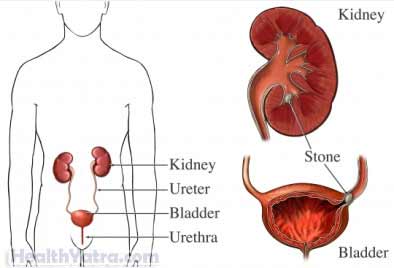Definition
This test uses sound waves to study the renal system. The renal system includes the kidneys, bladder, and ureters (the tubes that connect the kidneys to the bladder).
Reasons for Test
The test is done to look for:
- Changes in the bladder wall
- Changes in kidney size or structure
- Kidney stone, cyst, mass, or other obstruction in the kidney
- Stones in the urinary tract
- Changes in the ureters
The test is also done to look at:

- Kidneys before doing a renal biopsy (removal of tissue from the kidney for exam)
- Blood flow to the kidneys (a Doppler ultrasound is used)
Possible Complications
There are no major complications associated with this test.
What to Expect
Prior to Test
- Your doctor may do a physical exam.
- You must have a full bladder for the test. Do not empty your bladder until after the ultrasound.
Description of Test
You will lie on a table. Your doctor will put a gel on your belly over your bladder and kidneys. The gel helps the sound waves travel between the machine and your body.
The ultrasound machine has a hand-held instrument called a transducer. It looks like a microphone or wand. The transducer is pushed against your skin where the gel was applied. The transducer sends sound waves into your body. The waves bounce off your internal organs and echo back to the transducer. The echoes are converted into images that are shown on a screen. The doctor examines the images. He may make a photograph of them.
After Test
The gel will be wiped from your belly.
How Long Will It Take?
30-45 minutes
Will It Hurt?
No
Results
A radiologist will look at the images to make sure everything appears normal.
However, your doctor or radiologist might detect problems with your organs. He or she could also see blockage in the tubes. In this case, more tests may be done to find the exact problem and cause. Your doctor may also decide that the renal ultrasound provides enough information to make up a treatment plan for you.
Call Your Doctor
Call your doctor if you have any questions about the test, your condition, or your test results.
